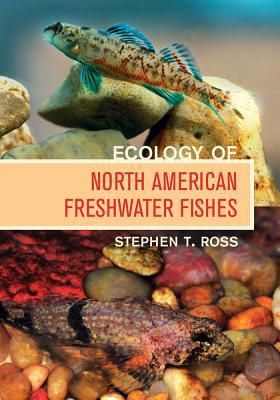
Ecology of North American Freshwater Fishes provides readers with a broad understanding of why specific species and assemblages occur in particular places. Additionally, the text explores how individuals and species interact with each other and with their environments, how such interactions have been altered by anthropogenic impacts, and the relative success of efforts to restore damaged ecosystems.
This book is designed for use in courses related to aquatic and fish ecology, fish biology, ichthyology, and related advanced ecology and conservation courses, and is divided into five sections for ease of use. Chapter summaries, supplemental reading lists, online sources, extensive figures, and color photography are included to guide readers through the material and facilitate student learning.
Part 1: Faunal origins, evolution, and diversity
Presents a broad picture--both spatially and temporally--of the derivation of the fauna, including global and regional geological and climatological processes and their effects on North American fishes.
Part 2: Formation, maintenance, and persistence of local populations and assemblages
Focuses on how local fish populations and assemblages are formed and how they persist, or not, through time.
Part 3: Form and function
Deals with the relationship of body form and life history patterns as they are related to ecological functions.
Part 4: Interactions among individuals and species
Discusses the numerous interactions among individuals and species through communication, competition, predation, mutualism, and facilitation.
Part 5: Issues in conservation
Focuses on several primary conservation issues such as flow alterations and the increasing biotic homogenization of faunas.
Ecology of North American Freshwater Fishes provides readers with a broad understanding of why specific species and assemblages occur in particular places. Additionally, the text explores how individuals and species interact with each other and with their environments, how such interactions have been altered by anthropogenic impacts, and the relative success of efforts to restore damaged ecosystems.
This book is designed for use in courses related to aquatic and fish ecology, fish biology, ichthyology, and related advanced ecology and conservation courses, and is divided into five sections for ease of use. Chapter summaries, supplemental reading lists, online sources, extensive figures, and color photography are included to guide readers through the material and facilitate student learning.
Part 1: Faunal origins, evolution, and diversity
Presents a broad picture--both spatially and temporally--of the derivation of the fauna, including global and regional geological and climatological processes and their effects on North American fishes.
Part 2: Formation, maintenance, and persistence of local populations and assemblages
Focuses on how local fish populations and assemblages are formed and how they persist, or not, through time.
Part 3: Form and function
Deals with the relationship of body form and life history patterns as they are related to ecological functions.
Part 4: Interactions among individuals and species
Discusses the numerous interactions among individuals and species through communication, competition, predation, mutualism, and facilitation.
Part 5: Issues in conservation
Focuses on several primary conservation issues such as flow alterations and the increasing biotic homogenization of faunas.
Hardcover
$83.33